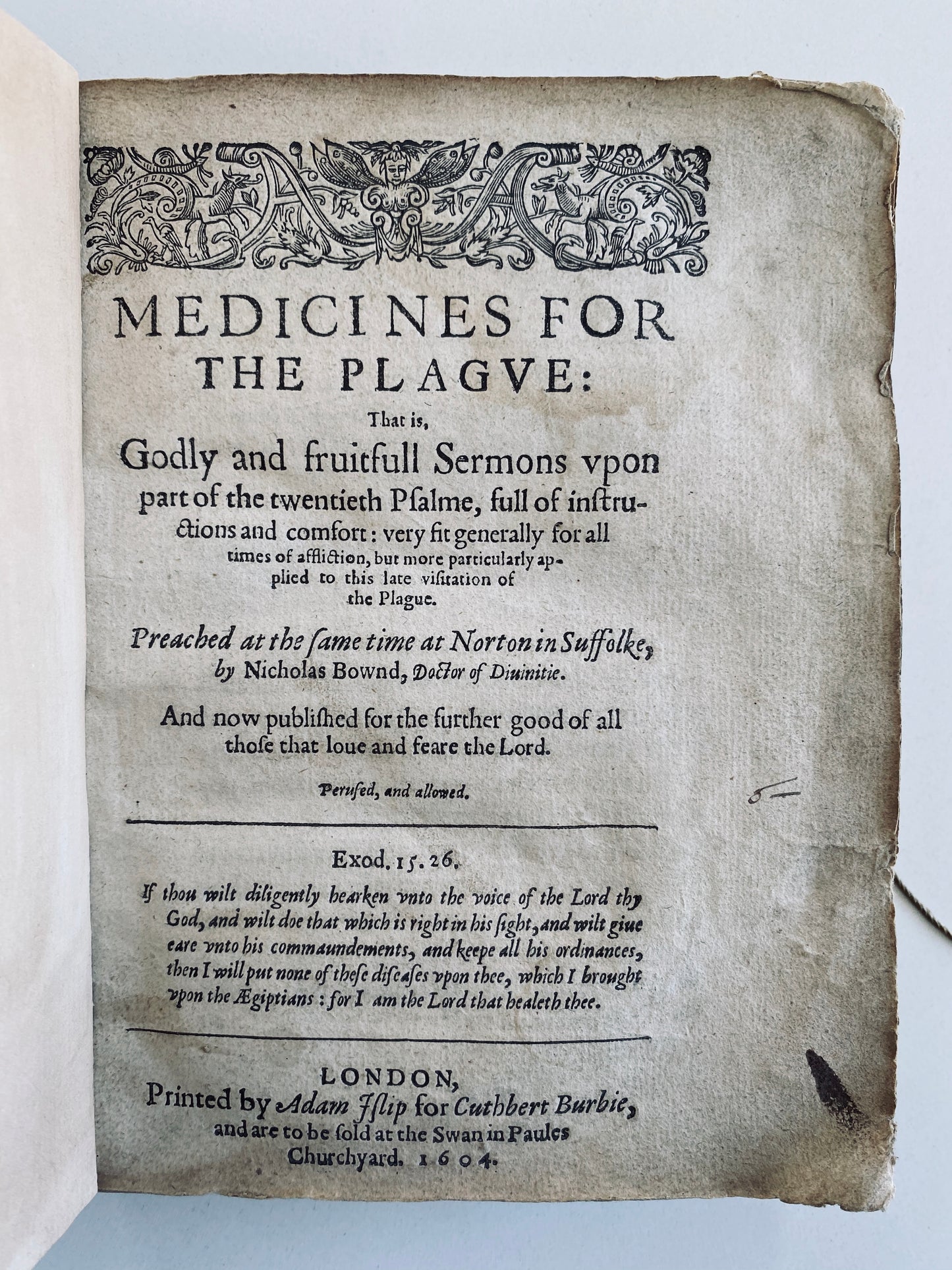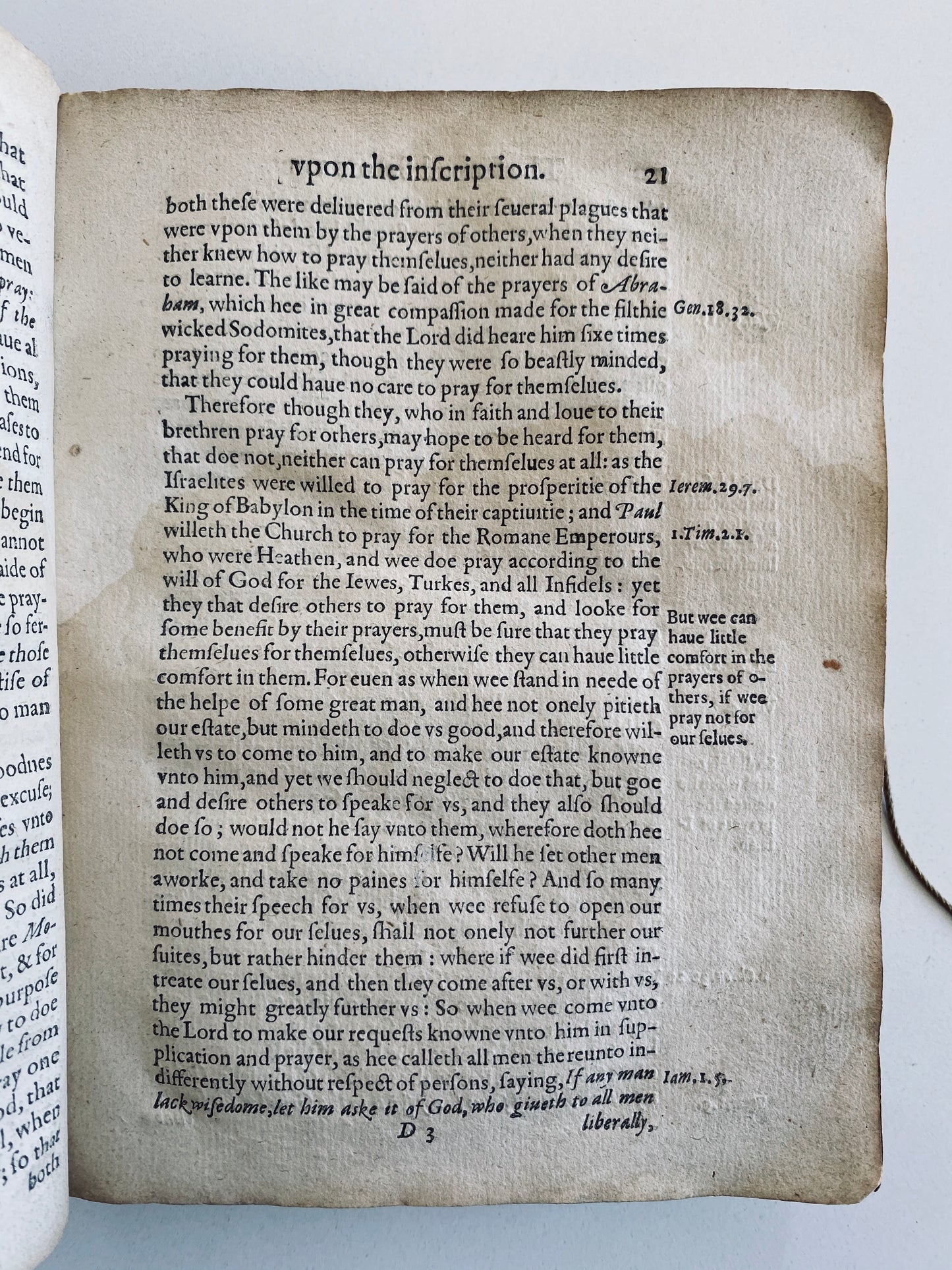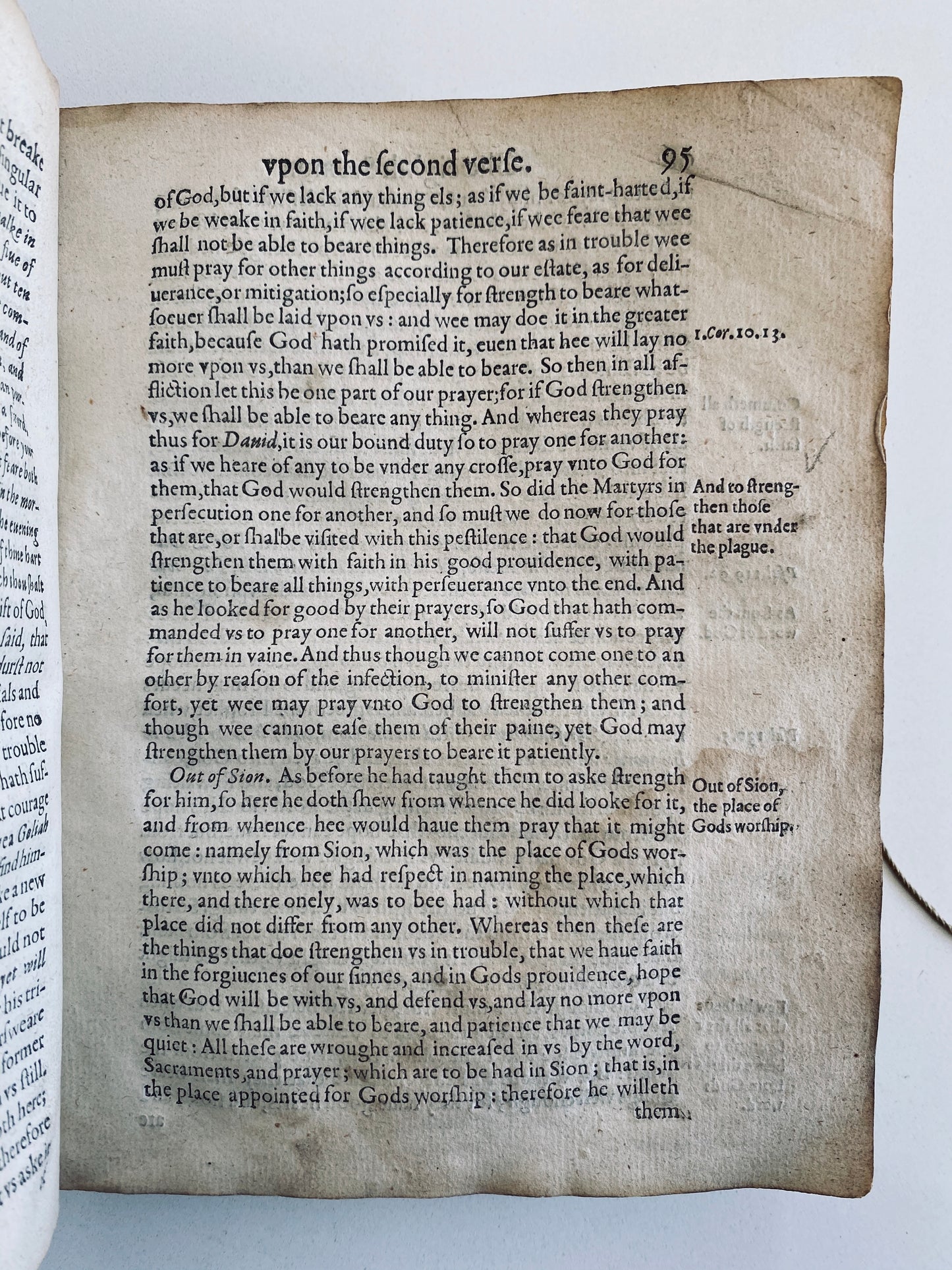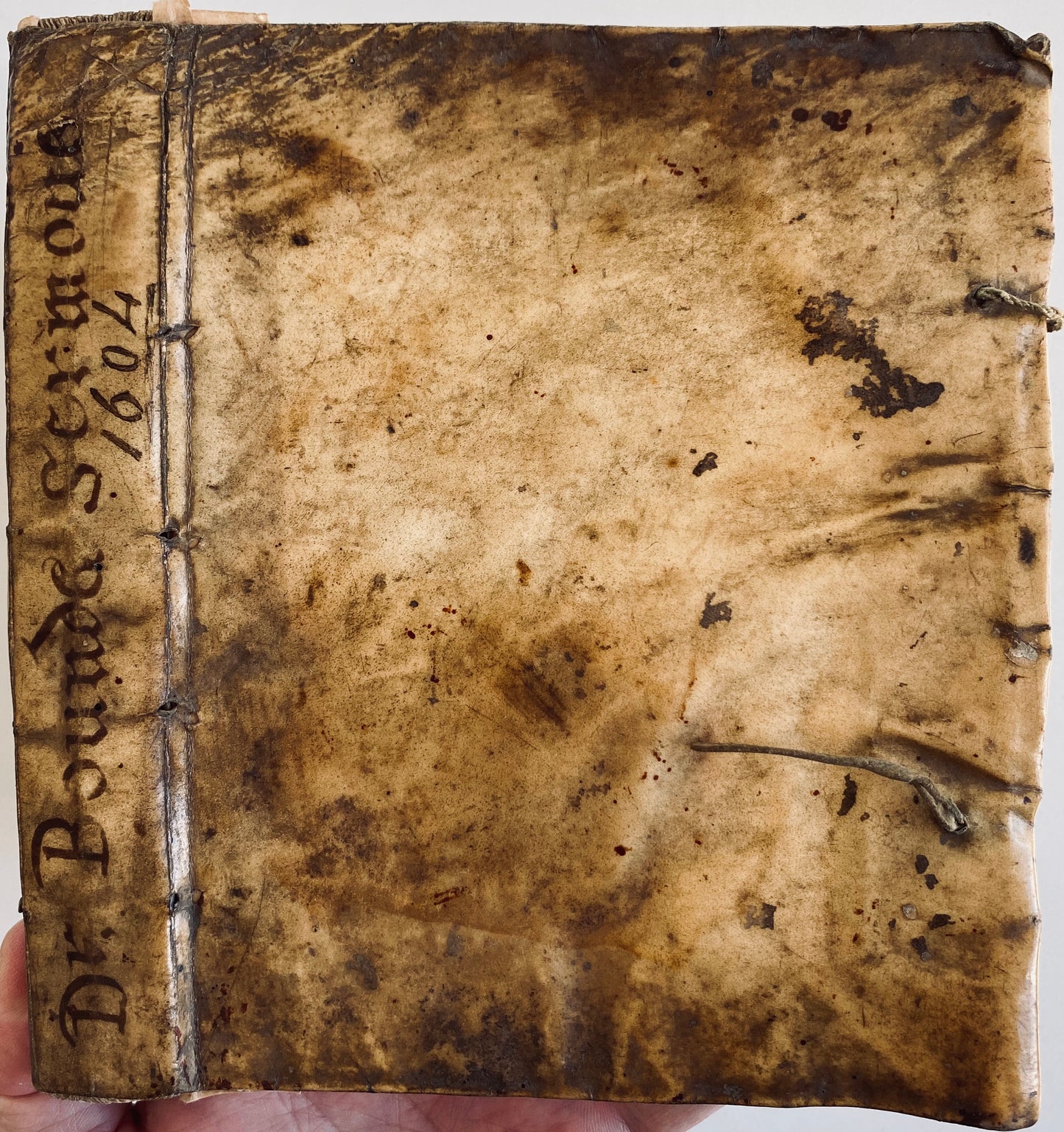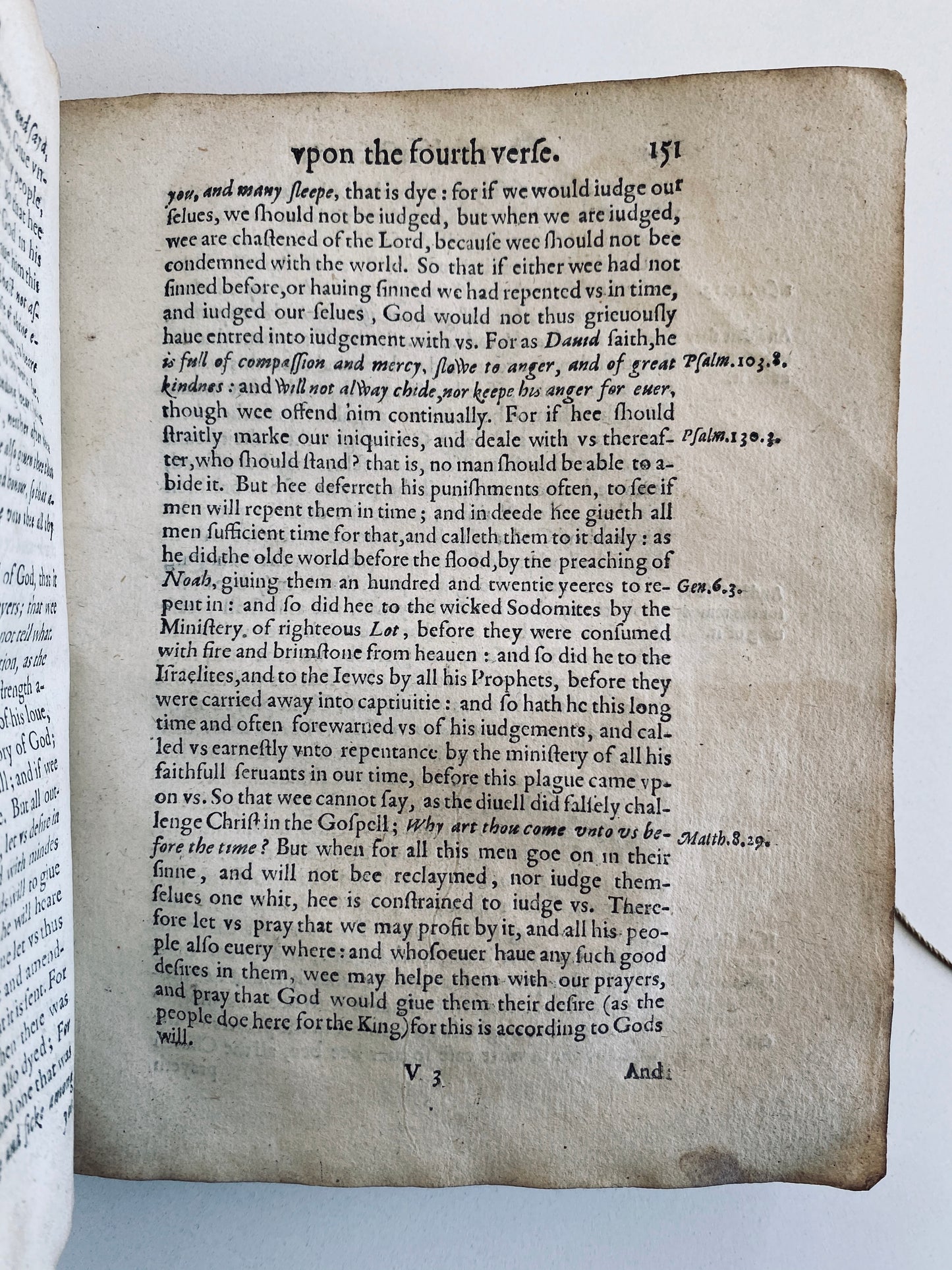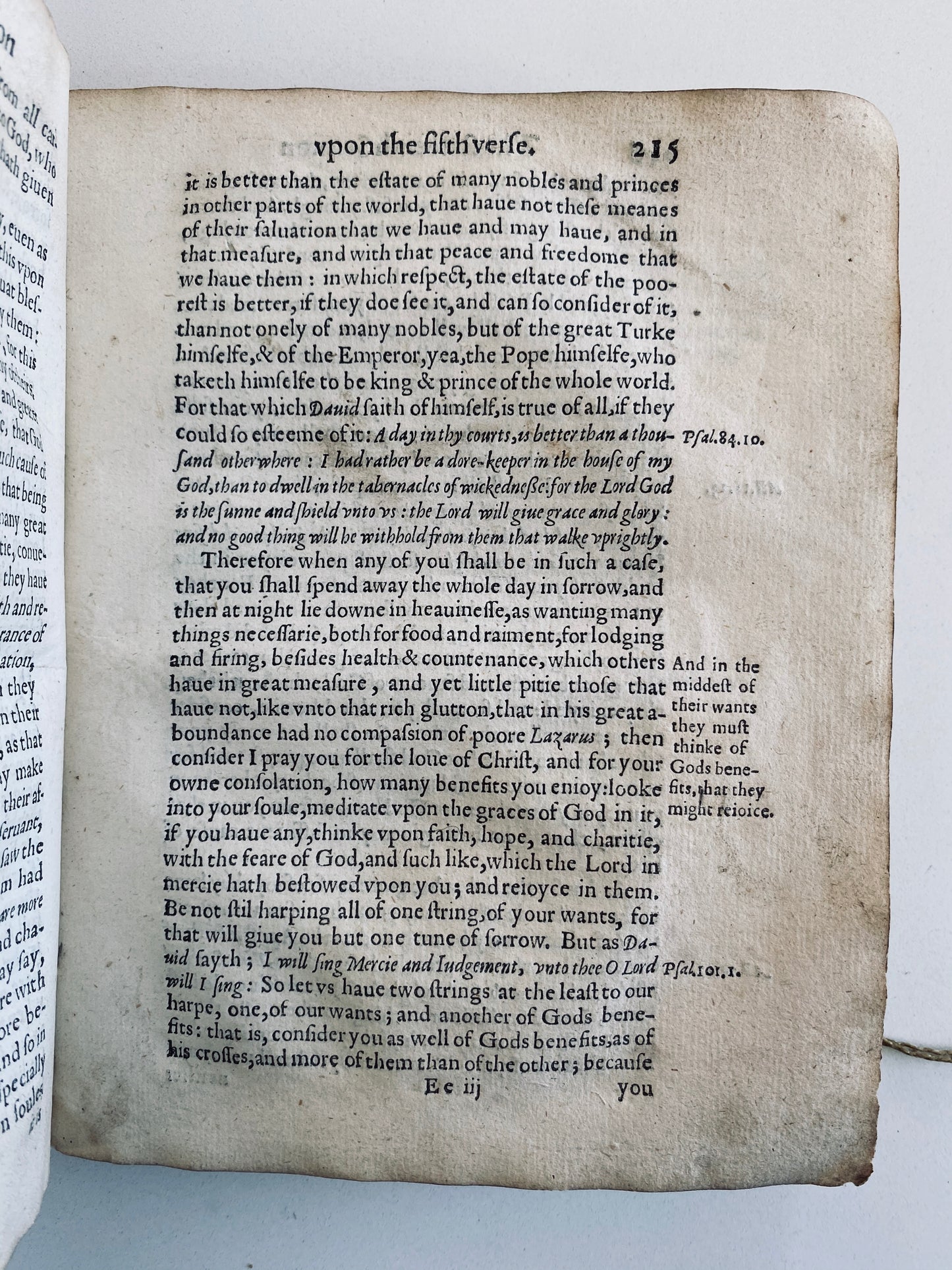Specs Fine Books
1604 NICHOLAS BOWND. Rare Puritan Sermons Preached On the Great Plague. Sickness, Faith, & Healing
1604 NICHOLAS BOWND. Rare Puritan Sermons Preached On the Great Plague. Sickness, Faith, & Healing
Couldn't load pickup availability
From its initial arrival in England in the year 1384, the Black Death, or simply "The Plague," would reappear, ravage London first, and then creep into the countryside again and again for centuries. Among the most deadly of all the epidemics was that of 1603. 2.5% of England's population disappeared in a matter of months.
The present volume is among the rarest, lengthiest, and most pastoral responses from the pulpit to the crisis; a deeply experimental puritan work. Of real fascination is the section hinted at in the preface excerpt, whereby Christians are told how they may be "recovered out of it," i.e. the Plague. There is some fascinating material present in this section on miraculous healing; a rarity in texts this early. It appears in the Covenanter literature and is hinted at by Richard Baxter, John Owen, and a few others. But this is fairly explicit and unusual.
Nicholas Bownd [1551-1613] is today primarily remembered for his sweeping theological defenses of the Christian Sabbath, The Doctrine of the Sabbath Plainly Laid Forth [1595] and Sabbathum Veteris [1606]. The former of these has been reprinted by Reformation Heritage Books. He was the puritan pastor of a country parish at Norton in Suffolk. His stepfather was the later reformation / early purtian divine, Richard Greenham, and Greenham's deep doctrine of grace flowing through means is evident in Bownd's preaching as well.
The last two years of Bownd's life he ministered at St. Andrew in Norwich, which was the highest position a Puritan divine could obtain at the time.
The present work is exceptionally rare; we have never seen another copy offered on the open market.
Bownd, Nicholas. Medicines for the Plague; That is, Godly and Fruitfull Sermons upon part of the Twentieth Psalme, full of Instructions and Comfort: Very fit Generally for All Times of Affliction, but more Particularly Applied to this late Visitation of the Plague. Preached at the Same Time at Norton in Suffolk, by Nicholas Bownd, Doctor of Divinitie. And now Published for the Further Good of All those that Love and Fear the Lord. London. Printed by Adam Islip for Cuthbert Burbie, and are to be sold at the Swan in Paules Churchyard. 1604. 301pp.
Apparently original vellum, though a bit squat for the text. Potentially repurposed from an earlier rebinding. Attractive, lovely patination. Some scattered staining to text and handled at corners. Early ownership on both interior boards, no pastedowns. Pagination incorrect at 136-139 with no loss of text; this apparently true of all extant copies.
From the Preface:
I have intituled them, Medicines for the Plague, because they contain many meditations fit for that evil, both to prevent it, and to bear it patiently, and to be recovered out of it, and to die comfortably in it. And I must needs confess that I did not make choice of this text, to entreat of tht argument of purposes, for then I might have taken many other more fit in the Scriptures; and this (to say the truth) doth not properly concern it one whit: but having entered into this Psalm before there was any great rumor of the Plague . . . when this new accident of the Plague fell out, because the Psalm did still so far agree with the time, as it was a time of trouble, I held on my course and make a virtue of necessity, and so did apply the Scripture unto the time, and all meditations of troubling arising out of it unto this one kind of trouble of the Plague especially, proepr unto that time, so far as it was necessary.
On Healing:
Jesus Christ, who in the days of his flesh healed all diseases with his word, and did but say to the dumb and deaf, be open, and they could presently hear and speak; and that said to lepers (whose disease was deadly and infective as the plague is) I will, be thou clean, and they were immediately healed, even sometimes many together; is able by the same word of his now (when all power is given unto him in heaven and in earth) to heal us by his word of most incurable diseases, when we can get nothing to help us. And he that said to the Centurion, Go thy way, thy servant liveth, and it was so; yea he that said not one word, and yet healed the woman of her bloody issue, whereof she had been sick twelve years, and had spent all she had upon the Physicians, and found no help; and he that said to the man that lay sick of the palsy eight and thirty years, Arise, take up thy bed and walk, and presently he was able to do it; and he that spake to Lazarus, when he had been dead four days, and was laid in his grave, so that in the opinion of divers, his carcass was rotten, and begun to stink, and said unto him with a loud and effectual voice, Lazarus come forth, and he did so in the sight of all the beholders; is able also much more to send his word, and heal us also, as the Psalmist speaketh; that is, heal us without all means.
That said, He healeth not all. Therefore, trust in the Fatherly heart of God is commended:
At this time, especially in respect of this great sickness it is most needful to have strength of faith, to believe God's gracious providence, that things come not by chance, but by his fatherly disposition; and to believe that he hath a care of us, and that nothing cometh by fortune; for it a sparrow falleth not to the ground without his will, then much less do men die, especially seeing the very hairs of our head are numberd; that so we may commend ourselves unto him, and take all things as from him, and be contented with it. And this is necessary not only for ourselves, but for our brethren also, that according to the measure of the sickness and pain, and the temptations of their mind, so they might have strength to bear all. For the very want of this strength has been the cause, that many even for fear have been overcome; much more when the thing hath been upon them, have they fallen to great impatience and many lamentable outcries. Every one of us is well acquainted with our own weakness this way, and do find by experience how small things we can bear, and how the least thing doth overcome us, yea, the very fear of it many times; therefore we have need to labour for strength. And by that weakness that is in ourselves, we may easily judge what is in others, and so see how requisit it i for them also, that God should strengthen them.
Share
